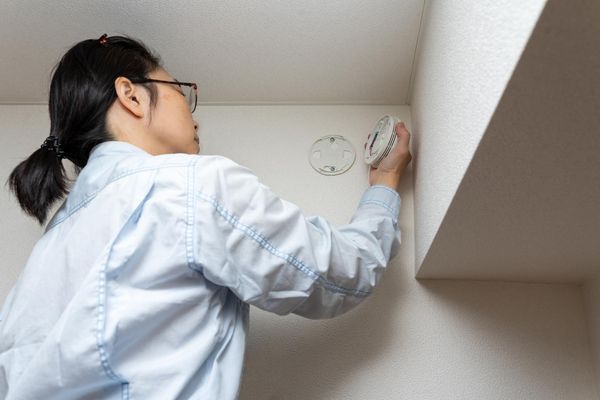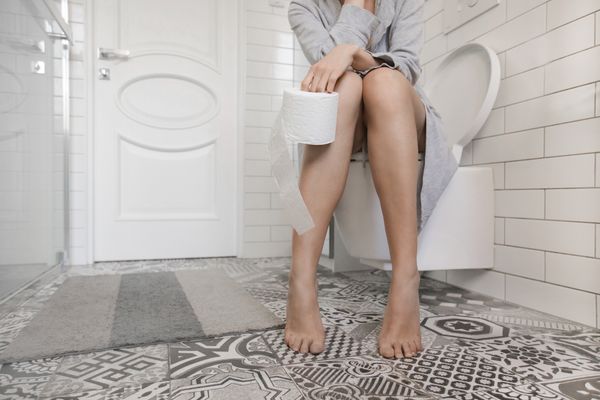As coronavirus forces us to spend more time in our homes, it's important we take time to understand that, despite all the good our homes provide, they, too, can make us sick if we don't take care to clean them—and ourselves—properly. It's true. From top to bottom, your home presents opportunities for illnesses. And one of the dirtiest places—if you don't take precautionary measures—in your home can actually be the room you use to clean yourself: your bathroom.
"The bathroom has lots of potential hazards," says Dr. Mary Jane Minkin, clinical professor
of obstetrics, gynecology and reproductive sciences at Yale University School of Medicine. "The culprits that have been shown to spread infections include toilet flush handles, inner bathroom door handles, bathroom sinks and toilet bowls."
We can't expect people to clean all these surfaces in their home daily, but here are some tips, tricks and bathroom gadgets that can help ensure your bathroom doesn't make you sick.
Take care to clean yourself. Whether you are urinating, having a bowel movement or menstruating, part of ensuring your time in the bathroom doesn't make you sick is to ensure you're properly cleaning yourself. “If women don't adequately clean themselves after a bowel movement, they can get urinary tract infections or vaginitis," says Dr. Minkin. “If they don't wipe clean (and more importantly dry) after urination, they can get some labial irritation," she continues. After urinating, wipe from front to back. If wiping after a bowel movement, wipe backward from the perineum (the space between the genitals and anus) toward and past the anus. Use additional wads of toilet tissue as needed until the paper is clean. Another option is to look into installing a bidet seat to your toilet. The water from a bidet cleans more thoroughly than paper, so it will give you peace of mind that you are really clean where it matters most.
Keeping the room where you clean yourself as clean as possible will help protect you and your family from unwanted illness and infection.
Minimize moisture. Extra moisture in your bathroom can lead to mildew, which can lead to mold, which can be hazardous to your health. Get in the habit of using a squeegee after you shower to help eliminate moisture on the tiles. Also, make sure your bathroom has a proper fan installed to alleviate the moisture in the air. Bonus: This will help prevent your paint from chipping.
Situate your sink and soap for optimal sanitation. Hand-washing is crucial in protecting yourself from illness. The ideal soap and sink setup is a hands-free environment. If your bathroom hand-washing station is not hands-free, no worries. Opt for pump soaps instead of bar soap and turn the faucet on with the backside of your hand.
Swap out your shower curtain. Some shower curtains are made of polyvinyl chloride (PVC), which is a type of plastic used in vinyl flooring, insulation, and, of course, shower curtains. It's strong but also flexible. Research conducted by the Center for Health, Environment and Justice found that one new curtain can release over 100 chemicals into indoor air, some of them persisting in the air for at least 28 days. The easiest way to ensure your shower curtain is chemical free is to buy one that is tightly woven cotton or linen.
For other healthy living tips, sign up for our newsletter.
This resource was created with support from American Standard.







